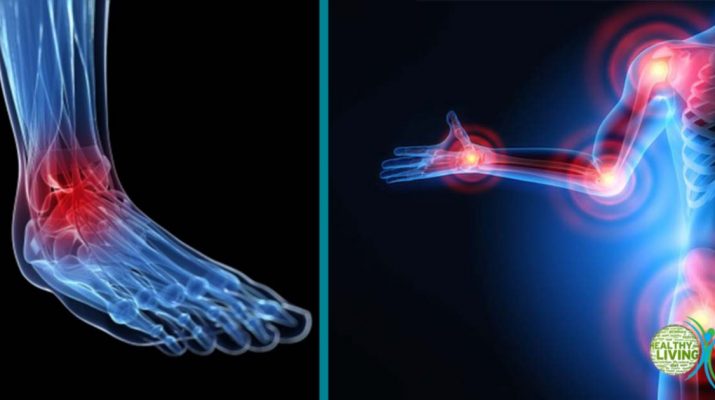Cancer, Alzheimer’s disease, heart disease, depression and type 2 diabetes are some of the diseases that are triggered or affected by low-level, chronic inflammation.
Despite the fact that modern science has still not researched diseases and inflammation to the fullest extent, there are many treatments and tests that are advertised on TV and the Internet. These treatments are a promising reduction of the risk and pain elimination.
But, did you know that inflammation can sometimes play a positive role? For instance, it keeps us safe from injuries and infections. Whenever you get a simple paper cut or you sprain the ankle, you will experience acute inflammation. This is a natural reaction of our immune system which is focused on supporting the process of healing.
However, whenever this response is present constantly, it can do more harm than good. This is exactly what you can expect from rheumatoid arthritis and other autoimmune diseases. In addition, inflammation has been spotted in many frequently occurring chronic disease although the role of inflammation in these cases is still unclear.
The fact is that there are markers present and they point to the formation of systematic inflammation. For instance, in order to evaluate the risk of cardiovascular disease, we can use a marker that comes in the form of a C-reactive high-sensitivity protein.
According to some theories, LDL or bad cholesterol buildup can damage blood vessel walls, triggering an inflammatory reaction that is able to activate the process of blood clot formation that can eventually lead to heart attacks.
However, the hs-CRP marker blood test is not specific. In other words, this test can confirm the presence of inflammation, but it is unable to answer why this inflammation is present. As we said before, the inflammation is present in cases of autoimmune diseases, infections, sprained ankles and many other diseases and health issues. So, the test is not very useful.
According to James Li, a respected immunologist and allergist at the famous Mayo Clinic, whenever they are focused on handling some medical problem, they are usually focused on the analysis of the disease process. They don’t treat these problems as inflammation present at a certain body part.
About 14 years ago, the AHA (American Heart Association) together with CDC (Centers for Disease Control and Prevention) advised health organizations to avoid hs-CRP testing of the general public.
However, they also pointed out that this test can be used as a useful tool for evaluating heart disease risk and selecting an adequate treatment approach especially for individuals who are prone to heart disease due to cholesterol levels, age, and blood pressure.
On the other hand, according to Thomas Pearson, a reputable cardiovascular epidemiologist and the VP for education and research at the popular University of Florida Health Sciences Center, a healthy individual with no risks factors and visible symptoms related to heart disease, will probably not see any benefits by taking an inflammation test of any kind.
Another thing that is unclear is whether addressing inflammation with the help of lifestyle changes or use of drugs will also lower the chances of the emergence of chronic diseases. This is a connection that is difficult to reveal.
There are certain anti-inflammatory, commercial drugs, NSAIDs, which can boost the chances of developing stroke and heart disease. Additionally, drugs designed for fighting or controlling diabetes and heart disease (metformin and statins) can fight inflammation too, but they also create a myriad of effects which is why it’s so hard to say what exactly is leading to improvement.
We can say the same things for the diet. Namely, certain dietary plans are able to lower the number of inflammatory proteins in our blood. However, they also lead to other benefits for our health like supporting proper weight and lowering the level of bad cholesterol in the blood.
As you are probably aware, following a diet that includes vegetables, fruits, fish, nuts and healthy oils is an excellent way to reduce inflammation.
Let’s take the Mediterranean diet as an example. This diet is based on a healthy, natural eating pattern. In addition, the DASH (Dietary Approaches to Stop Hypertension) diet also includes foods associated with normal or at least lower levels of inflammation. The MIND diet does the same thing.
This diet is following the basic principles of the previous two diets and it highly recommends consumption of leafy green veggies and berries. The three diet plans we’ve mentioned in this article are linked to lower risk of Alzheimer’s disease.
One of the best things that you can to lower the risks that come as a result of inflammation is the same recommendation you will get for better overall health – it is a smart move to stop smoking right away.
In addition, you should always take care of your body weight (keep it healthy) and of course – physical activity on a regular basis. In this way, you will lower inflammation for a long period of time.
According to many experts, people today are focused on finding a good medical test or a good pill, but they actually need a sound advice and discipline to look for changes in their lifestyle.
Source: NPR


